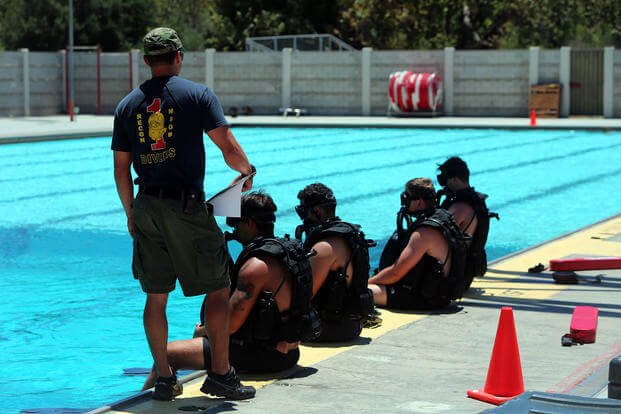There are many opportunities in the medical training field for Navy personnel who want to start their career in the Navy as a hospital corpsman (HM). The training and skills learned over a career can take you from a novice to fully qualified EMT, paramedic and even advance into becoming a nurse, physician assistant, medical doctor, researcher or surgeon.
The pipeline of training is limited only by your personal goals in the medical community. You can even become a special operations combat medic (SOCM) as a naval hospital corpsman.
Many hard-charging HMs want to serve in the Marine Corps or go into special operations -- SEAL, Special Warfare Combatant-Craft Crewman (SWCC), diver, RECON, MarSOC). The acronym SARC refers to a special amphibious RECON corpsman.
Here is an email from a young man seeking to join the Navy and become a hospital corpsman and serve with RECON or MarSOC units.
Stew, I am already a volunteer firefighter and EMT and want to take my skills into the Navy and perhaps work with Marines as a hospital corpsman. Perhaps later in my career, before I am too old, I would like to also try RECON or MarSOC so I am looking into the SARC pipeline. Any recommendations on what I need to train for physically? Academically? Thanks! Jack
Jack, The SARC pipeline will start off probably pretty boring for you as your current training will make boot camp at Great Lakes, Illinois, and "A" school for corpsmen somewhat easier for you. The "A" school will be 19 weeks of training, where most will be a review for you, but take this time and train hard to get into shape for the USMC PFT (pull-ups, crunches, three-mile run) as you will have to master that while attached to the Marine Corps units.
Preparing for your eight-week field medical training at Camp Lejeune, North Carolina, as well as the follow-on 12-week Basic RECON Course (BRC) will require running, rucking and swimming. Not just swimming with fins, but treading water, swimming with cammies on and without fins, too -- both on the surface and underwater. Get comfortable in the water -- and rucking.
Once you have completed the BRC, the training still will be difficult but extremely fun. You will get to enjoy jumping from planes, combat SCUBA diving, combat dive medicine and survival training (SERE -- survival, evasion, resistance and escape).
Then you get to attend the 36-week course called Special Operations Combat Medic (SOCM) at Fort Bragg, N.C. This is an intensive course of instruction that prepares you for becoming a combat medic skilled in trauma management and other involved medical procedures within a RECON or MarSOC unit.
Stew Smith is a former Navy SEAL and fitness author certified as a Strength and Conditioning Specialist (CSCS) with the National Strength and Conditioning Association. Visit his Fitness eBook store if you're looking to start a workout program to create a healthy lifestyle. Send your fitness questions to stew@stewsmith.com.
Want to Learn More About Military Life?
Whether you're thinking of joining the military, looking for fitness and basic training tips, or keeping up with military life and benefits, Military.com has you covered. Subscribe to Military.com to have military news, updates and resources delivered directly to your inbox.



















